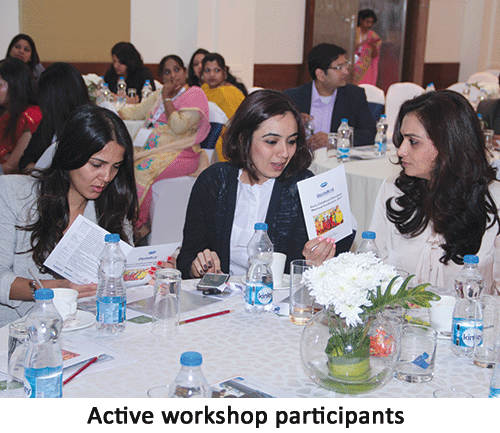Teacher education in the 21st century: Are you ready for the new National Education Policy’
 According to James Heckman, who was awarded the Nobel Prize for economics in 2000, the rate of return on investing in preschool education is higher than investing in education or training at any other time in a person’s life. In 2007, he calculated the rate of return on investment in preschool education at 7-10 percent per child. In 2017, he revised it to 10-13 percent.
According to James Heckman, who was awarded the Nobel Prize for economics in 2000, the rate of return on investing in preschool education is higher than investing in education or training at any other time in a person’s life. In 2007, he calculated the rate of return on investment in preschool education at 7-10 percent per child. In 2017, he revised it to 10-13 percent.
Heckman’s conclusion is endorsed by other studies including the HighScope Perry Preschool Study (2005), perhaps the most famous longitudinal study on the impact of early childhood education. One hundred and twenty-three children, born into poverty in the United States, were randomly divided into two groups. One group received high quality preschool education while the other did not. Ninety-seven percent of these students were interviewed years later when they were over 40 years of age. Students who had attended preschool had substantially higher incomes, were more likely to hold down jobs and had committed fewer crimes than those who hadn’t received preschool education.
The positive social and economic impact of early childhood education is measured by the extent to which it enables children to thrive emotionally, socially and cognitively in primary and secondary education. Research studies from around the world are unanimous that children who receive pre-primary education demonstrate superior socio-emotional and cognitive development compared to children deprived of it. The Perry Preschool Project mentioned earlier, the Effective Provision of Preschool Education Project conducted by Oxford University (2003) and the Comprehensive Preschool Education Project study conducted in Turkey (1998), all endorse this conclusion.
 Several studies in India have also assessed the impact of preschool education. In 1993, NCERT (National Council for Educational Research and Training) surveyed 38,000 children and found those who received early childhood education were 15-20 percent more likely to complete primary school. Five years later, Prof. Venita Kaul of the Centre for Early Childhood Education and Development at the Ambedkar University, Delhi, also conducted a study which concluded that children who attended preschool recorded higher mathematics scores in primary school.
Several studies in India have also assessed the impact of preschool education. In 1993, NCERT (National Council for Educational Research and Training) surveyed 38,000 children and found those who received early childhood education were 15-20 percent more likely to complete primary school. Five years later, Prof. Venita Kaul of the Centre for Early Childhood Education and Development at the Ambedkar University, Delhi, also conducted a study which concluded that children who attended preschool recorded higher mathematics scores in primary school.
But despite growing evidence of the benefit of ECCE from India and abroad, preschool education has received insufficient attention in India. Although the Central government’s Integrated Child Development Services (ICDS) programme was launched in 1975, its impact on ECCE is unsatisfactory.
The ICDS centres or anganwadis are staffed by workers who receive very little ECCE-specific training, and whose attention is divided across six key areas, including early childhood education. The number of youngest children who attend anganwadis varies from state to state and ranges from 10-90 percent. However, the exact number of children who benefit from each of the six initiatives is hard to estimate. Anganwadi workers are overworked, undertrained and undercompensated. While the majority of children enrolled in ECCE go to anganwadi centres, others attend low-cost private preschools and even fewer are in high-end private preschools. But even in the latter, there’s incredible variation in the quality of preschool education provided to children.
In December 2013, the Union cabinet of the Congress-led UPA-II government approved a National Early Childhood Care and Education Policy draft which made several recommendations covering classroom size, teacher qualifications, appropriate curriculum and material, and recommended strengthening the capacity of teacher education institutions. But since then the policy has not been implemented with sufficient rigour.
Currently, the Union HRD ministry website directs ECCE educators to a document titled ‘Some Inputs for the Draft National Education Policy 2016’ which includes sections on early childhood education. We may soon have a new ECCE policy, and it would be in the national interest for early childhood educators to study the HRD ministry’s National Education Policy 2016 draft and prepare to conform with its provisions.